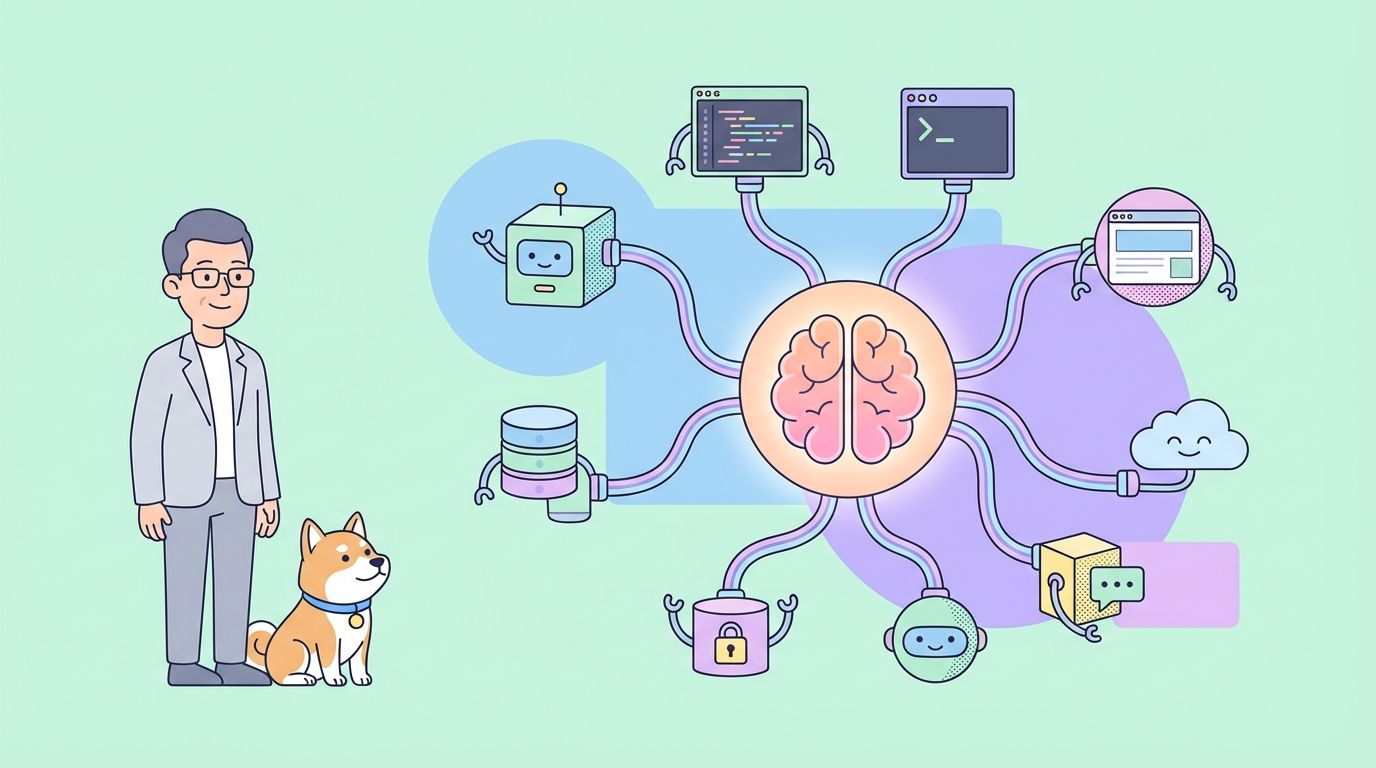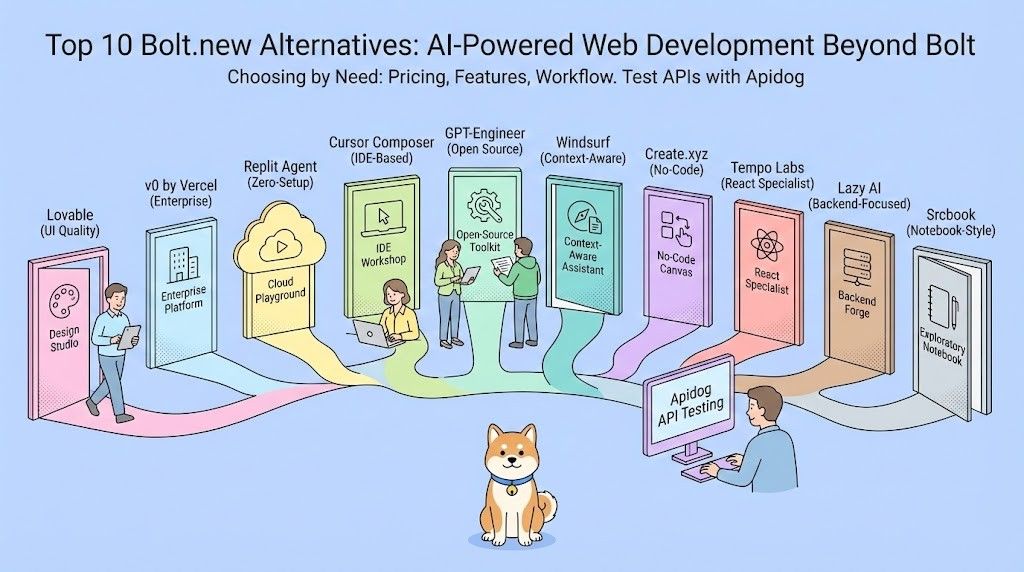Automated testing tools are essential for ensuring software quality, efficiency, and reliability. With the rapid evolution of technology, the market is flooded with options. Here’s a detailed look at the top 10 automated testing tools available today.
What is Automated Testing?
Automated testing represents a paradigm shift in software quality assurance, leveraging technology to streamline and enhance the testing process. This approach involves using specialized software tools to execute pre-scripted tests on applications, comparing actual outcomes with predicted results. By automating repetitive and time-consuming tasks, development teams can significantly improve efficiency, accuracy, and test coverage.
Core Concepts of Automated Testing, Explained:

Test Automation Framework: A set of guidelines, coding standards, and tools that facilitate the creation and execution of automated tests. Common frameworks include data-driven, keyword-driven, and hybrid approaches.
Test Scripts: Programmatic instructions that define test cases, including input data, expected outcomes, and validation logic. These scripts can be written in various programming languages such as Python, Java, or JavaScript.
Test Data Management: The process of creating, maintaining, and provisioning test data to ensure comprehensive and realistic testing scenarios.
Continuous Testing: The practice of running automated tests as an integral part of the software delivery pipeline, enabling rapid feedback on code changes.
Different Types of Automated Testing, Explained:
- Unit Testing: Verifies individual components or functions of the software in isolation.
- Integration Testing: Ensures that different modules or services work together correctly.
- Functional Testing: Validates that the software meets specified functional requirements.
- Performance Testing: Assesses the system's responsiveness and stability under various load conditions.
- Security Testing: Identifies vulnerabilities and potential security risks in the application.
- User Interface (UI) Testing: Verifies the visual elements and user interactions of the application.
With these knowledge in mind, Let's take a look a the best automated testing tools:
10 Best Automated Testing Tools
1.APIDog

APIDog has emerged as a leading automated testing tool, offering a comprehensive suite of features that cater to the diverse needs of developers, testers, and QA professionals. Its user-friendly interface combined with powerful capabilities makes it an ideal choice for API testing and development.

Key Features of APIDog
Real-time API Testing: APIDog allows users to send real-time HTTP requests to APIs, providing immediate feedback on API functionality. This feature enables developers to quickly identify and resolve issues during the development process.
Intuitive User Interface: The platform boasts a clean, intuitive interface that simplifies the API testing process. Even those new to API testing can navigate the tool with ease, reducing the learning curve and increasing productivity.
Advanced Parameter Customization: APIDog offers extensive options for customizing request parameters. Users can easily set up complex testing scenarios by manipulating headers, query parameters, and request bodies, ensuring thorough coverage of API functionality.
Robust Request and Response Validation: The tool provides powerful validation capabilities for both requests and responses. Users can set up assertions to verify API behavior, data integrity, and performance metrics, ensuring that APIs meet specified requirements.
Multi-format Compatibility: APIDog supports a wide range of data formats, including JSON, XML, and form data. This versatility allows testers to work with various API types and structures, making it suitable for diverse project requirements.
Automated Test Suites: Users can create and manage automated test suites within APIDog. These suites can be scheduled to run at specific intervals or triggered as part of a CI/CD pipeline, ensuring continuous API quality assurance.
Mock Server Functionality: APIDog includes a mock server feature that allows developers to simulate API responses. This is particularly useful for frontend developers who can start their work before the backend API is fully implemented.
Collaborative Workspace: The platform offers collaborative features that enable team members to share API collections, test cases, and results. This fosters better communication and coordination among development and QA teams.
API Documentation Generation: APIDog automatically generates API documentation based on the defined endpoints and test cases. This feature ensures that documentation stays up-to-date with the latest API changes.
Pricing and Accessibility: APIDog offers a generous free tier that provides access to core features without time limitations or the need for a credit card. This makes it an excellent option for individuals, small teams, or those looking to evaluate the tool before committing to a paid plan.For users requiring additional features or higher usage limits, APIDog offers flexible paid plans that cater to various team sizes and project requirements.
2. Selenium

Selenium is one of the most popular automated testing tools, widely used for web applications. It supports multiple programming languages, including Java, C#, and Python, making it versatile for developers. Selenium allows for the automation of browsers, enabling testers to simulate user interactions and validate web application functionality effectively.
Key Features:
- Cross-browser compatibility: Works with Chrome, Firefox, Safari, and more.
- Integration capabilities: Easily integrates with frameworks like TestNG and JUnit.
- Support for various platforms: Can be used on Windows, macOS, and Linux.
3. TestComplete

TestComplete is a powerful automated testing tool that supports various types of applications, including desktop, mobile, and web. Its user-friendly interface allows both technical and non-technical users to create automated tests without extensive coding knowledge.
Key Features:
- Record and playback functionality: Quickly create tests by recording user actions.
- Keyword-driven testing: Supports keyword-based test creation for easier test management.
- Comprehensive reporting: Provides detailed reports and analytics on test results.
4. JUnit

JUnit is a widely-used testing framework for Java applications. It is particularly popular among developers for unit testing, allowing them to test individual components of their code.
Key Features:
- Annotations: Simplifies test creation with annotations for setup, teardown, and test methods.
- Integration with build tools: Works seamlessly with Maven and Gradle for continuous integration.
- Extensive community support: A large community provides resources and plugins for enhanced functionality.
5. Cucumber

Cucumber is an automated testing tool that supports Behavior-Driven Development (BDD). It allows testers to write tests in plain language, making it accessible for non-technical stakeholders.
Key Features:
- Gherkin syntax: Enables writing tests in a human-readable format.
- Integration with various programming languages: Supports Java, Ruby, and more.
- Collaboration between teams: Encourages communication between developers, testers, and business analysts.
6. QTP/UFT

QuickTest Professional (QTP), now known as Unified Functional Testing (UFT), is a comprehensive automated testing tool for functional and regression testing. It is particularly effective for enterprise-level applications.
Key Features:
- GUI testing: Automates graphical user interface testing for various applications.
- Support for multiple protocols: Tests web, mobile, and desktop applications.
- Data-driven testing: Allows for testing with multiple data sets to ensure robust testing coverage.
7. Appium

Appium is an open-source tool for automating mobile applications. It supports both Android and iOS platforms, making it a go-to choice for mobile application testing.
Key Features:
- Cross-platform support: Write tests once and run them on multiple platforms.
- No modifications required: Tests can be executed on real devices without altering the application code.
- Strong community support: A vibrant community offers plugins and integrations to enhance capabilities.
8. SoapUI

SoapUI is an open-source tool specifically designed for API testing. It allows users to test REST and SOAP web services, ensuring that APIs function correctly before deployment.
Key Features:
- Functional testing: Provides comprehensive testing capabilities for APIs.
- Load testing: Simulates heavy loads to test API performance under stress.
- Data-driven testing: Supports testing with various data sets to validate API responses.
9. Postman

Postman is widely recognized for its ease of use in API development and testing. It provides a robust platform for creating, testing, and documenting APIs.
Key Features:
- Intuitive user interface: Simplifies the process of creating and executing API requests.
- Automated testing: Supports writing tests in JavaScript to automate API responses validation.
- Collaboration tools: Allows teams to share collections and environments, enhancing teamwork.
10. Katalon Studio

Katalon Studio is an all-in-one automated testing solution that supports web, API, mobile, and desktop applications. It combines powerful features with an intuitive interface, making it suitable for both beginners and experienced testers.
Key Features:
- Built-in keywords: Offers a library of built-in keywords for easy test creation.
- Integration with CI/CD tools: Works well with Jenkins, Git, and other tools for continuous delivery.
- Rich reporting: Provides detailed execution reports and analysis for better decision-making.
Automated Testing Best Practices
- Prioritize test cases based on critical business functions and high-risk areas.
- Implement version control for test scripts to track changes and facilitate collaboration.
- Use descriptive and meaningful names for test cases and functions.
- Regularly review and refactor test code to maintain readability and efficiency.
- Implement proper error handling and logging mechanisms in test scripts.
- Integrate automated tests with CI/CD pipelines for continuous quality assurance.
By embracing automated testing, organizations can accelerate their development cycles, improve software quality, and ultimately deliver more value to their users. As the complexity of software systems continues to grow, automated testing will play an increasingly crucial role in ensuring reliable and high-performing applications.
Conclusion
Choosing the right automated testing tool is crucial for enhancing software quality and streamlining the testing process. Each tool on this list offers unique features and capabilities, catering to different testing needs.
Whether you're focused on web applications, mobile, or API testing, there’s a solution that fits your requirements. By leveraging these automated testing tools, teams can improve efficiency, reduce manual errors, and deliver high-quality software products faster.



